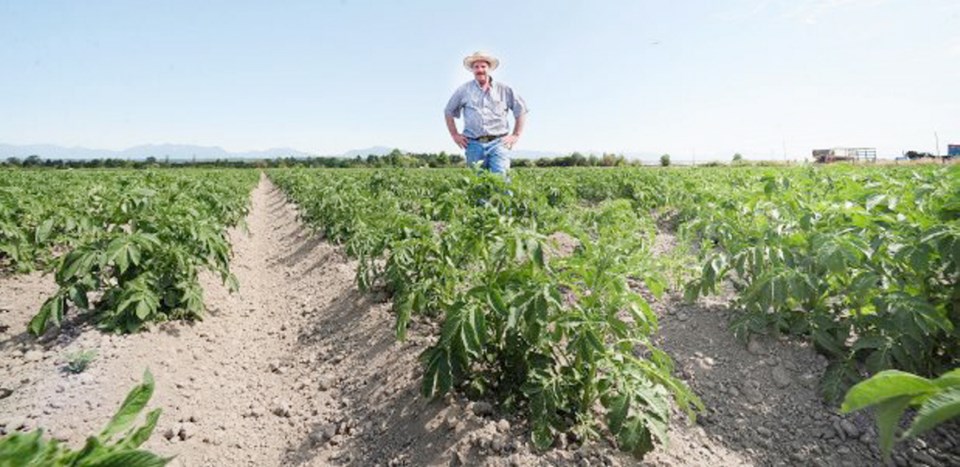In all his years of working on the family farm, Bill Zylmans has never seen a summer harvest like this.
“I’m 58 years old now and I have never, ever come across something of this nature,” Zylmans said of this year’s early, dry summer heat wave and what it’s done for crops.
“And it’s on for the foreseeable future.”
This year’s heat has made for an earlier harvest than usual, which means those hoping to pick berries at their local U-pick might be out of luck.
“Things are extremely early, things are going extremely fast, and the crops are probably not as plentiful,” Zylmans said of things like strawberries, raspberries and blueberries.
“Any berry crop just cannot handle these extreme heats.”
B.C. produces about one-quarter of the country’s strawberries, which is a $6-million harvest, and in recent years, has seen raspberry harvests as large as 20 million kilograms and as small as 11 million kg. The province also produces about 95 per cent of the country’s blueberries.
Farmers typically begin to harvest strawberries in late May, with the majority of the crop harvested in June.
The tail end of the strawberry harvest then overlaps with raspberries, which are usually late June and early July fare. Blueberries are traditionally harvested in mid- to late July.
Christine Koch, manager of the Fraser Valley Farm Direct Marketing Association, said that hasn’t been the case for 2015.
“This year, all three berries are — bam! — on top of each other,” she said, noting there’s been much more of an overlap between the berry crops.
Koch said she’s also heard rumblings from association members that corn might begin its harvest as early as this coming week, something that usually doesn’t happen until late July.
Zylmans is the owner of W&A Farms in Richmond, which has been around since 1957. The farmer said he’s gone through the farm’s records and said there isn’t a recorded summer where crops have come so early due to an early stretch of hot weather.
W&A Farms usually closes following strawberry season to regroup before opening again in August with pumpkins, gourds, squash and other seasonal vegetables.
“Obviously, if there’s certain veggies, berries or fruit you’re interested in, be on top of it,” he said. “Because everything is ahead of the program.”
Consumers who buy direct from farms would do best to stay in touch with the farm, check their websites for updates, and be aware that this summer’s timeline has been and will continue to be very different than previous years.
However, early crops don’t come without their own sets of challenges.
Koch noted there has been some talk of farmers struggling to get enough pickers to help with the harvest, and there are concerns about the lack of moisture in the ground.
“It’s an amazing selection but the thing is, you’ve got to have enough water for the crops,” said Koch.
Zylmans noted that farmers who are “caught off guard” are now trying to install irrigation systems in anticipation of a late summer dry spell, but even that “may be a little bit too late.” Those with the infrastructure already in place are having to use them a lot sooner.
“Farmers don’t have a whole lot of history with a summer like this,” he said. “There’s no textbook method to deal with this.”



